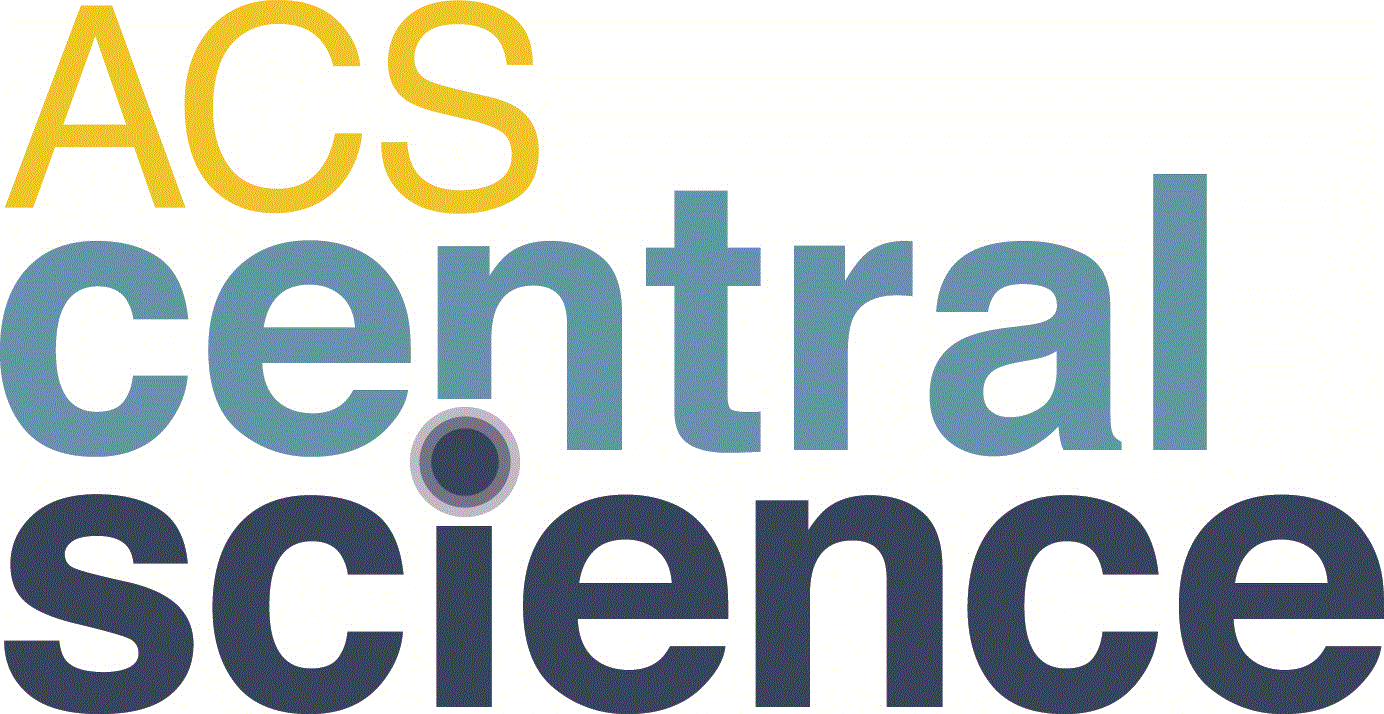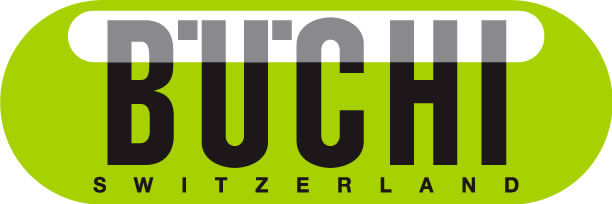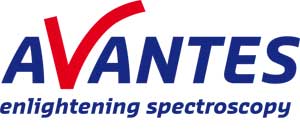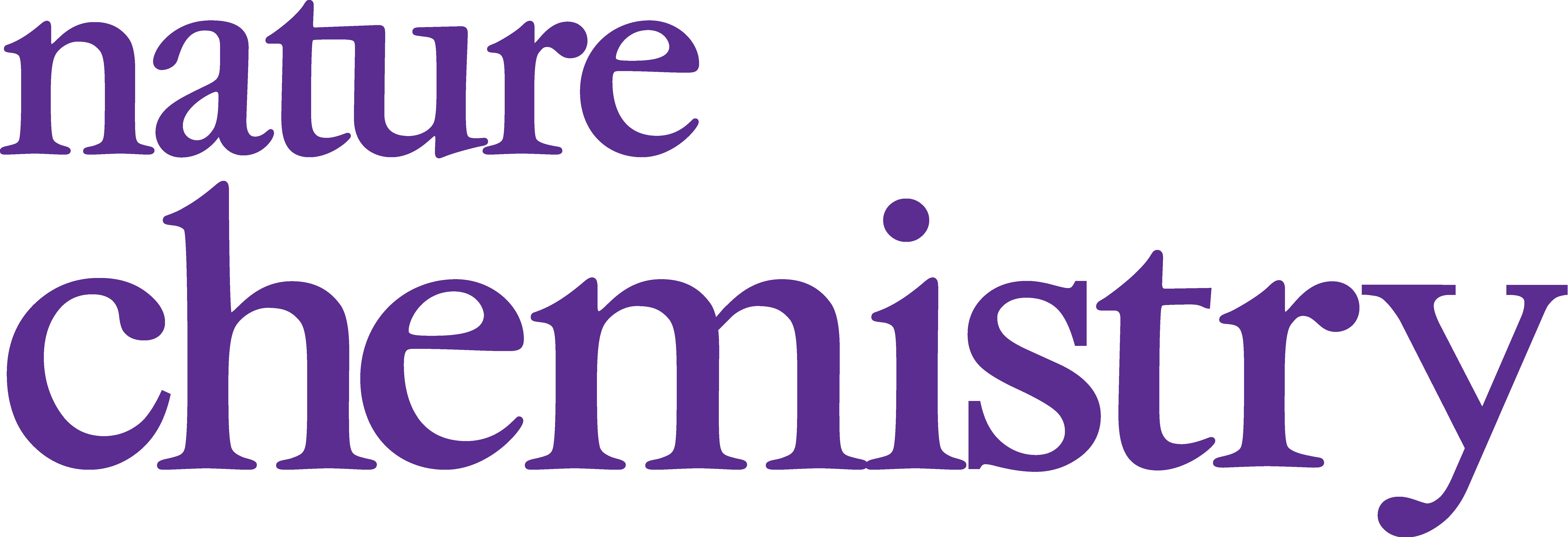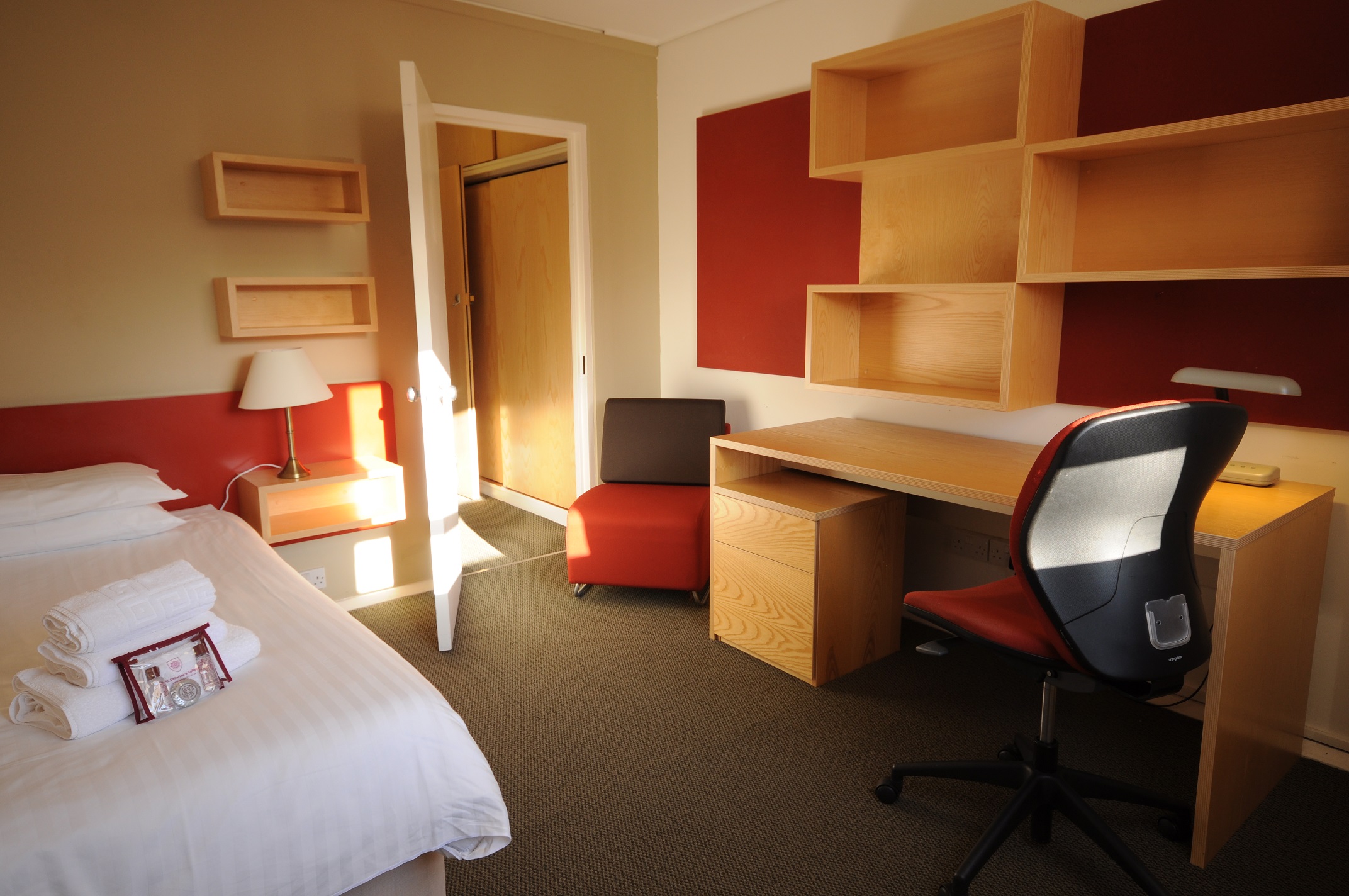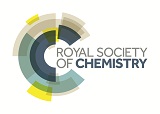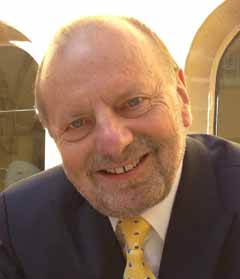 François Diederich, ETH Zurich, Switzerland
François Diederich, ETH Zurich, Switzerland
Professor François Diederich (b. 1952 in Luxembourg) received his diploma (1977) and his Ph. D. (1979) from the University of Heidelberg. After postdoctoral studies at UCLA (1979-1981), he started independent research at the Max-Planck-Institute for medical research (Heidelberg). After his habilitation (1985), he joined the faculty of the Department of Chemistry and Biochemistry at UCLA as an associate professor (1985-1989) and full professor (1989-1992). In 1992, he became professor of organic chemistry at ETH Zurich. He received the ACS Arthur C. Cope Scholar Award (1992), the Otto-Bayer-Preis für Chemie (1993), the Janssen Prize for Creativity in Organic Synthesis (2000), the August-Wilhelm-von-Hofmann-Denkmünze (GDCh, 2006), the ACS Ronald Breslow Award in Biomimetic Chemistry (2007), the Adolf-von-Baeyer-Denkmünze (GDCh, 2011), the Ernst Helmut-Vits-Preis (Universitätsgesellschaft Münster, 2014) and holds a honorary doctoral degree from the Technion (2012). He is a member of the Deutsche Akademie der Naturforscher Leopoldina and the Berlin-Brandenburgische Akademie der Wissenschaften (BBAW), a foreign honorary member of the American Academy of the Arts and Sciences and the Real Academia Española de Ciencias, and a foreign associate of the US National Academy of Sciences
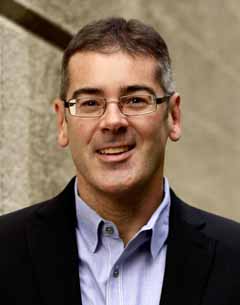 Jeffrey Long, University of California, Berkeley, United States
Jeffrey Long, University of California, Berkeley, United States
Jeffrey R. Long is Professor of Chemistry and Chemical & Biomolecular Engineering at the University of California, Berkeley and Senior Faculty Scientist in the Materials Sciences Division at Lawrence Berkeley National Laboratory. He served as Chair of the Division of Inorganic Chemistry of the American Chemical Society in 2012 and a founding Associate Editor of Chemical Science, and he is presently Director of the Center for Gas Separations and lead-PI for the Berkeley Hydrogen Storage Program. In 2014, he co-founded Mosaic Materials, Inc., a company devoted to the development of metal-organic frameworks for low-energy gas separations. His 230 publications have received more than 30,000 citations, and his recent awards include a UC Berkeley Graduate Assembly Faculty Mentor Award and the 2014 Inorganic Chemistry Lectureship Award.
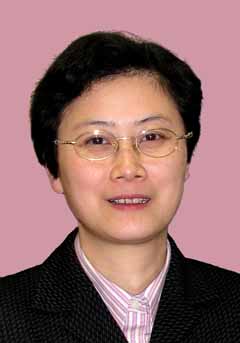 Vivian Yam, University of Hong Kong, Hong Kong
Vivian Yam, University of Hong Kong, Hong Kong
Professor Vivian W.W. Yam obtained her BSc(Hons) and PhD from The University of Hong Kong, and is currently the Philip Wong Wilson Wong Professor in Chemistry and Energy and Chair Professor there. She was elected to Member of the Chinese Academy of Sciences, Foreign Associate of the US National Academy of Sciences, Foreign Member of Academia Europaea, Fellow of the TWAS, and Founding Member of The Academy of Sciences of Hong Kong. She was the Laureate of the 2011 L’Oréal-UNESCO For Women in Science Award and recipient of the RSC Centenary Medal, RSC Ludwig Mond Award, State Natural Science Award, Japanese Photochemistry Association (JPA) Eikohsha Award, and Chinese Chemical Society-China Petroleum & Chemical Corporation (Sinopec) Chemistry Contribution Prize. Her research interests include inorganic and organometallic chemistry, supramolecular chemistry, photophysics and photochemistry, and metal-based molecular functional materials for sensing, organic optoelectronics and energy research.
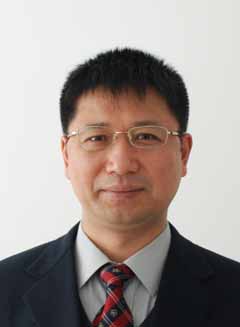 Xi Zhang, Tsinghua University, China
Xi Zhang, Tsinghua University, China
Xi Zhang is a professor of chemistry at Tsinghua University, Beijing, China. Currently, he is the Director-in-general of the Department of Chemical Science, National Natural Science Foundation of China (2014~); Vice President of the Chinese Chemical Society (2010~); President of Pacific Polymer Federation (2016~). His research interests include supra-amphilphiles for controlled self-assembly and disassembly; controllable supramolecular polymerization; selenium-containing polymers; layer-by-layer assembly; single-molecule force spectroscopy. He was selected as Member of Chinese Academy of Sciences in 2007.
 David Leigh, University of Manchester, United Kingdom
David Leigh, University of Manchester, United Kingdom
Perkin Prize Winner 2017
David Leigh obtained his PhD from the University of Sheffield, UK, in 1987 and, after postdoctoral research at the National Research Council of Canada in Ottawa, he was appointed to a Lectureship in Organic Chemistry at the University of Manchester Institute of Science and Technology (now part of the University of Manchester) in 1989. After spells at the Universities of Warwick and Edinburgh David returned to Manchester where he is currently Sir Samuel Hall Professor of Chemistry. David’s research interests include the development of new strategies for interlocked molecule synthesis (catenanes, rotaxanes and knots) and the design and construction of artificial molecular motors and machines. His work has been recognised with a number of national and international awards, including the Izatt-Christensen Award for Macrocyclic Chemistry, the Feynman Prize for Nanotechnology and the Descartes Prize for Transnational Research. He was elected to the Fellowship of the Royal Society (FRS) in 2009
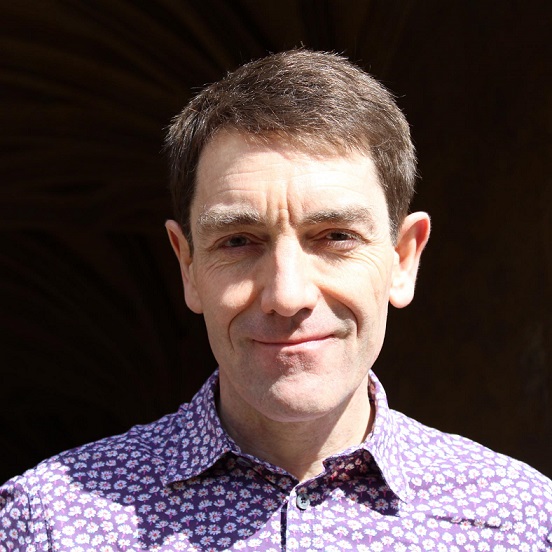 Harry Anderson, University of Oxford, United Kingdom
Harry Anderson, University of Oxford, United Kingdom
Izatt-Christensen Award Winner 2017
Harry Anderson completed his PhD with Jeremy Sanders at the University of Cambridge UK and did postdoctoral work with François Diederich at ETH Zurich, Switzerland. He has led an independent research group at the University of Oxford since 1995. His work includes the investigation of porphyrin-based molecular wires, cyclodextrin polyrotaxanes, insulated molecular wires, encapsulated π-systems, template-directed synthesis, multivalent cooperativity, nanorings, polyynes, nonlinear optical chromophores and functional dyes. His research group has extended the frontiers of macrocyclic chemistry by preparing the largest synthetic macrocycles and the largest known Hückel-aromatic rings.
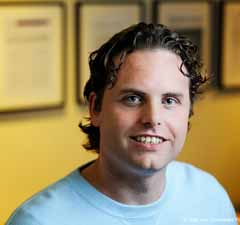 Tom de Greef, Eindhoven University of Technology, Netherlands
Tom de Greef, Eindhoven University of Technology, Netherlands
Cram Lehn Pedersen Prize in Supramolecular Chemistry Winner 2017
Tom de Greef obtained his PhD from the Eindhoven University of Technology, The Netherlands in 2009 under supervision of prof. dr. E. W. “Bert” Meijer and prod. dr. Rint Sijbesma in the area of supramolecular polymers. Subsequently, he performed post-doctoral studies in the area of modelling and simulations of self-assembling systems at the same university. In 2010, he was appointed as assistant professor at the Biomedical Engineering Department of the Eindhoven University of Technology where he was promoted to associate professor in 2016. In 2013, he was visiting scholar in the group of prof. David Weitz at Harvard. His research interests include quantitative aspects of supramolecular polymerisations and the bottom-up engineering of cell-free biochemical networks with advanced regulatory properties such as oscillations and bistability. He obtained several research grants such an ERC Starting Grant and an NWO-VENI grant and is the recipient of the 2017 Cram Lehn Pedersen prize in supramolecular chemistry.
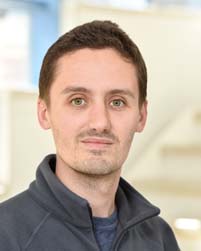 Steve Goldup, University of Southampton, United Kingdom
Steve Goldup, University of Southampton, United Kingdom
Bob Hay Lectureship Winner 2016
Steve obtained an MChem degree from the University of Oxford where he began his research career with a Part II project in the group of Sir Prof. Jack Baldwin. He continued his research training with a PhD in natural product synthesis under the supervision of Prof. Tony Barrett before shifting focus to apply his synthetic skills to the realisation of mechanically interlocked non-natural products during post doctoral work with Prof. David Leigh at the University of Edinburgh. In 2008 he moved to Queen Mary with the award of a Leverhulme Trust Early Career Fellowship and in October 2009 he was awarded a Royal Society University Research Fellowship. In October 2014 the group moved to the University of Southampton where Steve took up the position of Associate Professor. Steve leads a talented group of young researchers in the synthesis of novel mechanically interlocked molecules and their application as sensors, catalysts and materials.
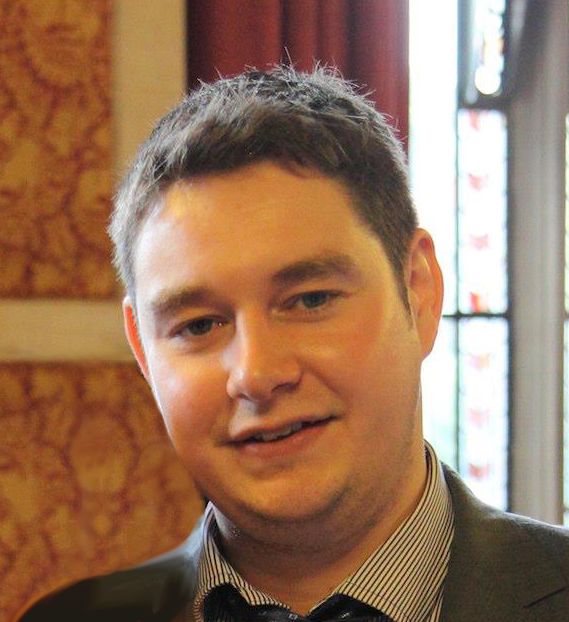 Scott Cockroft, University of Edinburgh, United Kingdom
Scott Cockroft, University of Edinburgh, United Kingdom
Bob Hay Lectureship Winner 2017
Scott conducted his PhD and postdoctoral work under the supervision of Profs. Christopher A. Hunter FRS (Sheffield, now Cambridge, UK) and M. Reza Ghadiri (The Scripps Research Institute, California), respectively. Scott started his independent research career at the University of Edinburgh in 2007. The Since then, the Cockroft group have been investigating the origins of molecular recognition using synthetic model systems, while seeking to harness these principles in the construction of bio‑supramolecular devices that operate across lipid membranes. Scott was awarded an ERC Starting Grant in 2013, a Philip Leverhulme Prize in 2016 and will be delivering the 2017 Bob Hay Lecture at ISMSC 2017 in Cambridge.
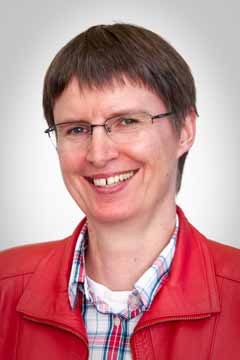 Sally Brooker, University of Otago, New Zealand
Sally Brooker, University of Otago, New Zealand
Professor Sally Brooker (FRSNZ, FNZIC, FRSC) went to Hawarden Area School (1970-1982), then studied at the University of Canterbury, New Zealand [BSc(Hons) first class; PhD with Professor Vickie McKee]. After postdoctoral research at Georg-August-Universität Göttingen, Germany with Professor George M. Sheldrick, she took up a Lectureship at the University of Otago where she is now a full Professor. Her research interests concern the design, synthesis and full characterisation of, primarily paramagnetic, di- and poly-metallic complexes of transition metal ions with polydentate acyclic and macrocyclic ligands, as these have interesting redox, magnetic, catalytic and photophysical properties.
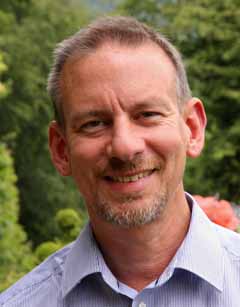 Jonathan Clayden, University of Bristol, United Kingdom
Jonathan Clayden, University of Bristol, United Kingdom
Jonathan Clayden was born in Uganda in 1968, grew up in the county of Essex, and was an undergraduate at Churchill College, Cambridge. In 1992 he completed a PhD at the University of Cambridge with Dr Stuart Warren. After postdoctoral work at the École Normale Supérieure in Paris with Prof. Marc Julia, he moved in 1994 to the University of Manchester as a lecturer. In 2001 he was promoted to a chair in organic chemistry, and in 2015 he moved to a chair in chemistry at the University of Bristol. His research interests encompass various areas of synthesis and stereochemistry, particularly where conformation has a role to play: asymmetric synthesis, atropisomerism, organolithium chemistry, synthesising biomimetic function using dynamic foldamers, and using extended molecules to achieve long-range communication of information. He has published 250 papers, and is a co-author of the widely used undergraduate textbook “Organic Chemistry” (OUP), now in its second edition. His book “Organolithiums: Selectivity for Synthesis” was published by Pergamon in 2002. He was awarded the Royal Society of Chemistry’s Merck Award in 2011, Stereochemistry Prize in 2006, and Corday-Morgan Medal in 2003. Since 2011 he has held a Royal Society Wolfson Research Merit award and a European Research Council Advanced Investigator Grant.
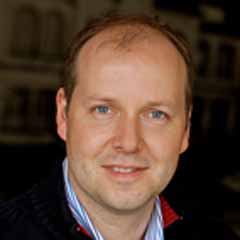 Guido Clever, Technische Universität Dortmund, Germany
Guido Clever, Technische Universität Dortmund, Germany
Guido H. Clever, born in 1976, is a full professor for bioinorganic chemistry at the Technical University of Dortmund, Germany, since 2015. Between 1997 and 2003 he studied chemistry at Ruprecht-Karls University Heidelberg. For his doctoral thesis, he went to the University of Marburg and later followed his supervisor to LMU Munich where he obtained his PhD degree in 2006. From 2007 till 2010, he joined The University of Tokyo, first as an Alexander-von-Humboldt and JSPS postdoctoral fellow, later as an assistant professor. In 2010, he became a junior professor and from 2013 an associate professor at the institute for inorganic chemistry at Georg-August University Göttingen. His research focusses on the supramolecular coordination chemistry of functionalized cages, stimuli-responsive host-guest systems and DNA G-quadruplex structures. Awards he received include the ADUC prize 2012 of the German Chemical Society (GDCh) and the young researchers award of the Fonds der Chemischen Industrie in 2014.
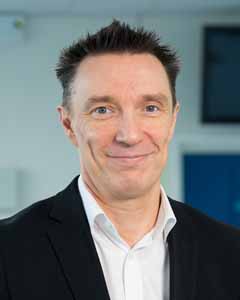 Andy Cooper, University of Liverpool, United Kingdom
Andy Cooper, University of Liverpool, United Kingdom
Andy Cooper is a Nottingham graduate (1991), also obtaining his Ph.D there in 1994. After his Ph.D, he held a 1851 Fellowship and a Royal Society NATO Fellowship at the University of North Carolina at Chapel Hill, USA, and then a Ramsay Memorial Research Fellowship at the Melville Laboratory for Polymer Synthesis in Cambridge. In 1999, he was appointed as a Royal Society University Research Fellowship in Liverpool. He is the founding Director of the Centre for Materials Discovery, established in 2007, and was Head of Chemistry and then the first Head of the School of Physical Sciences in the period 2007-2012. He led the UK RPIF bid to establish the Materials Innovation Factory and is its first Academic Director. He is also the Director of the Leverhulme Centre for Functional Materials Design. He was elected to the Royal Society in 2015.
Andy’s research interests are polymeric materials, porous materials, supramolecular chemistry, and materials for energy production and storage. He also has a strong technical interest in high-throughput materials discovery methods. He has been awarded the Macro Group Young Researchers Award (2002), the RSC Award in Environmentally Friendly Polymers (2005), the McBain Medal (2007), the Corday-Morgan Prize (2009), the Macro Group Award (2010), a Royal Society Wolfson Research Merit Award, and the Tilden Prize (2014). In 2011, he was named in a Thomson Reuters list as one of the Top 100 materials scientists of the last decade, one of eight UK scientists so listed.
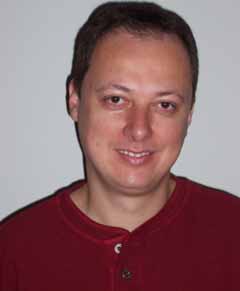 Radu Custelcean, Oak Ridge National Laboratory, United States
Radu Custelcean, Oak Ridge National Laboratory, United States
Radu Custelcean grew up in Transylvania, Romania, where he studied Chemistry at Babeş-Bolyai University between 1990 and 1996. He then moved to the United States, where he received his Ph.D. in Chemistry in 2000 from Michigan State University, for work with James E. Jackson on structure and reactivity of dihydrogen-bonded crystals. After a postdoctoral training in crystal engineering at the University of Minnesota with Michael D. Ward, he started his independent career in 2003 as a research scientist at Oak Ridge National Laboratory. In 2008, he received the Margaret Etter early career award from the American Crystallographic Association. His research interests are in the areas of anion recognition and separation, crystallization, and self-assembled molecules and materials for environmental and energy applications.
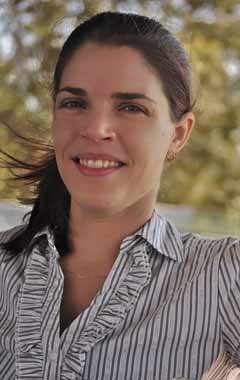 Deanna D'Alessandro, The University of Sydney, Australia
Deanna D'Alessandro, The University of Sydney, Australia
Deanna received her BSc (Hons) in 2001 and her PhD in Chemistry from James Cook University, Australia, in 2006 under the supervision of Professor Richard Keene. She held a brief postdoctoral position in at the University of Sydney before venturing to the US to undertake a postdoctoral position with Professor Jeff Long at the University of California, Berkeley from 2007-9 as a Dow Chemical Company Fellow of the American-Australian Association and a Royal Commission for the Exhibition of 1851 Research Fellow. Deanna returned to Australia in 2010 as a University of Sydney Postdoctoral Research Fellow in the School of Chemistry. In 2011 she received an Australian Research Council Queen Elizabeth II Fellowship which allowed her to start building her own research group exploring energy-related applications of microporous materials. Recently, she has been the recipient of the 2014 Rennie Medal of the Royal Australian Chemical Institute and a 2015 ChemComm Emerging Investigator Lectureship from the Royal Society of Chemistry
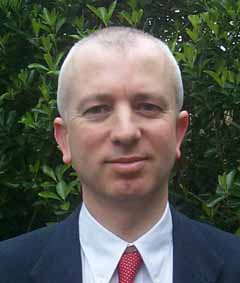 Tony Davis, University of Bristol, United Kingdom
Tony Davis, University of Bristol, United Kingdom
Tony Davis gained a B.A. in Chemistry from Oxford University in 1977, then stayed on for a D.Phil. under Dr. G. H. Whitham and two years’ postdoctoral work with Prof. J. E. Baldwin. In 1981 he moved to the ETH Zürich as a Royal Society European Exchange Fellow working with Prof. A. Eschenmoser, then in 1982 was appointed as a Lecturer in Organic Chemistry at Trinity College, Dublin. In September 2000 he moved to the University of Bristol, where he is Professor of Supramolecular Chemistry in the School of Chemistry. His research focuses on the design, synthesis and study of carbohydrate receptors and transmembrane anion transporters. He received the Royal Society of Chemistry’s Tilden Medal in 2002, and the Award for Physical Organic Chemistry in 2015. He is a member of the Editorial Board of Organic and Biological Chemistry, and scientific advisor to Ziylo, a company founded to exploit his group’s work on carbohydrate sensing.
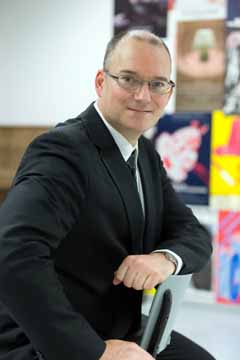 Bas de Bruin, Universiteit van Amsterdam, Netherlands
Bas de Bruin, Universiteit van Amsterdam, Netherlands
Bas de Bruin obtained his PhD from the Radboud University of Nijmegen in 1999 (Group Gal). He did his postdoc (group Wieghardt) at the Max-Planck Institut für Bioanorganische Chemie in Mülheim a/d Ruhr, Germany (1999-2000), for which he obtained an Alexander-von-Humboldt fellowship. After his postdoc he returned to the University of Nijmegen as an Assistant Professor in Metal-Organic Chemistry. November 2005 he moved to the University of Amsterdam (UvA), where he was promoted to Associate Professor in 2008, and to Full Professor in 2013. Bas de Bruin has several research interests, ranging from organometallic chemistry, homogeneous catalysis, EPR spectroscopy, DFT computational chemistry and catalytic radical reactions. He presently focuses at fundamental development of homogeneous catalysis with metals in unconventional oxidation states and with unconventional ligands, specifically aiming at the development of new catalytic (radical-type) reactions with earth-abundant metals, for which he obtained several research grants (among which an ERC Starting Grant, an NWO-VIDI grant and an NWO-VICI grant). January 2016, Bas de Bruin was elected as ‘UvA teacher of the year 2015’ by the students of the University of Amsterdam.
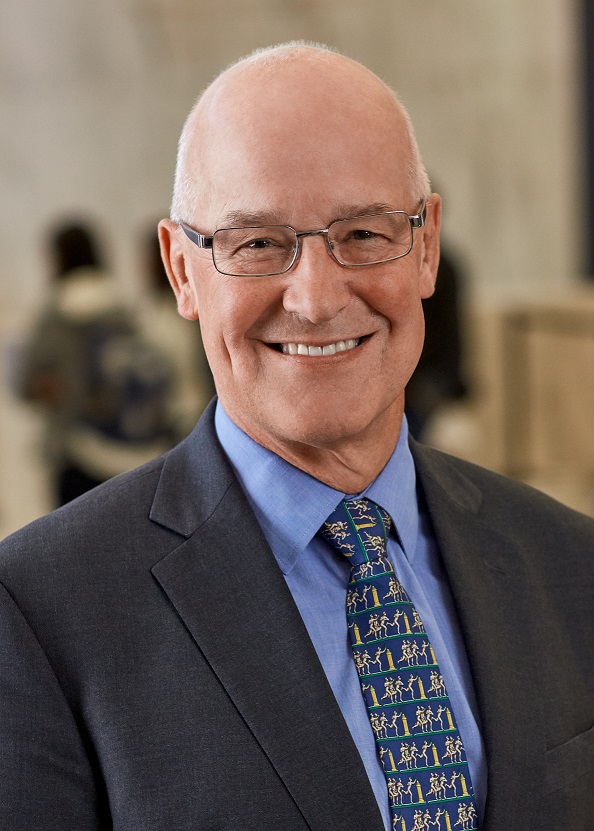 Andrew Hamilton, University of New York, United States
Andrew Hamilton, University of New York, United States
Andrew Hamilton was named the 16th president of New York University—one of the largest and foremost private universities in the US—in March 2015, officially taking up his duties on January 1, 2016.
Dr. Hamilton served as the vice chancellor of Oxford University from 2009 to 2015. His tenure as vice chancellor was distinguished by significant improvements in university governance and faculty relations; the launch of a new School of Government and the expansion of the business school; the enhancement of interdisciplinary research and teaching; a significant increase in fundraising, with a focus on raising student financial aid to diversify Oxford’s student body, among other initiatives.
Before being named as Oxford’s vice chancellor, Dr. Hamilton served as provost (2004–08) of Yale University; he had previously been Yale’s deputy provost for science and technology.
In addition to his record as an academic leader, Dr. Hamilton is a noted, award-‐winning, widely published chemist, and he has continued to maintain his scholarly work— including an active research laboratory—while holding leadership positions. He is a Fellow of the Royal Society, a member of the American Academy of Arts and Sciences, a member of the American Association for the Advancement of Science, the recipient of the Arthur C. Cope Scholar Award from the American Chemical Society, and the winner of the International Izatt-‐Christiansen Award for Macrocyclic Chemistry.
At Yale—where he joined the faculty in 1997—he was the Benjamin Silliman Professor of Chemistry and professor of molecular biophysics and biochemistry. Prior to joining Yale’s faculty, he was a tenured professor of chemistry and chair of the chemistry department at the University of Pittsburgh, and an assistant professor of chemistry at Princeton University.
He received a first class BSc from the University of Exeter, his master’s degree from the University of British Columbia, and his doctorate from the University of Cambridge. He is the recipient of honorary doctorates from the University of Surrey, Tsinghua University, and the University of Exeter, among others.
President Hamilton and his wife, Jennie, have three adult children.
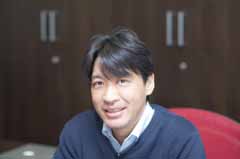 Ken Itami, Nagoya University, Japan
Ken Itami, Nagoya University, Japan
Kenichiro Itami received his Ph.D. from Kyoto University under the guidance of Prof. Yoshihiko Ito. He began his academic career at Kyoto University as an Assistant Professor in 1998, then moved to Nagoya University to become an Associate Professor in 2005, and promoted to Full Professor in 2008. Since 2012, he is the Director of the Institute of Transformative Bio-Molecules (ITbM) in Nagoya University. In 2013, he was selected as the Director of JST-ERATO Itami Molecular Nanocarbon Project. The work of his group has centered on catalyst-enabling synthetic chemistry with broad directions including C-H activation, molecular nanocarbons, plant chemical biology, and chemical chronobiology.
>220 papers (h-index 51), >70 patent application, >200 plenary/invited lecturers
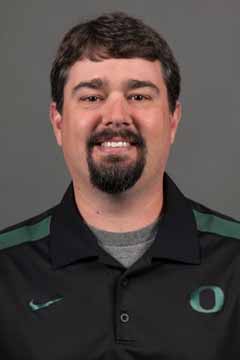 Darren Johnson, University of Oregon, United States
Darren Johnson, University of Oregon, United States
Darren W. Johnson received his B.S. in Chemistry at the University of Texas at Austin in 1996, where he performed undergraduate research in Jonathan L. Sessler's laboratory. He earned his Ph. D. in Chemistry in 2000 from the University of California at Berkeley working with Kenneth N. Raymond, and he then spent two years at the Scripps Research Institute as a National Institutes of Health post-doctoral fellow with Julius Rebek, Jr. He joined the University of Oregon in 2003, where he is currently a Professor of Chemistry and Associate Director of UO's Materials Science Institute. He is also a member of the NSF Center for Sustainable Materials Chemistry (csmc.us) and a co-founder of SupraSensor Technologies, a startup company seeking to commercialize sensors for nutrient management in agriculture. Research in his group uses supramolecular chemistry as a tool to explore a variety of problems in coordination chemistry, self-assembly, molecule/ion recognition and inorganic cluster synthesis. Recent publications from his lab include “Substituent Effects in CH Hydrogen Bond Interactions: Linear Free Energy Relationships and Influence of Anions”, J. Am. Chem. Soc. 2015, 137, 14959; “Facile Synthesis and Properties of 2-λ5-Phosphaquinolines and 2-λ5-Phosphaquinolin-2-ones”, Angew. Chem. Int. Ed. 2015, 54, 13318; and “A Facile Route to Old and New Cyclophanes Via Self-Assembly and Capture”, Nature Comm. 2016, in press.
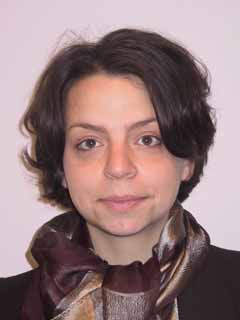 Nathalie Katsonis, University of Twente, Netherlands
Nathalie Katsonis, University of Twente, Netherlands
Nathalie Katsonis was born in Austria. She received a PhD from the University Paris 6 (France) in 2004, working on the nanoscale probe of molecular self-assemblies. She then joined the group of Prof. Ben Feringa at the University of Groningen (the Netherlands) as a postdoctoral fellow, extending her research interests to the self-assembly of artificial motors and photo-switches. In 2008 she became Associate Researcher at the French National Center for Scientific Research (CNRS Toulouse, France). In 2011 she moved to the University of Twente (the Netherlands), where she is currently Adjunct Professor. Nathalie Katsonis is the recipient of a number of research grants, including an ERC Starting Grant and a Vidi Grant from the Dutch Science Foundation. She is member of the Young Academy of the Royal Netherlands Academy of Arts and Sciences and was elected to the Global Young Academy. The research interests of her group include the design, synthesis and operation of molecular machines, and the development of bio-inspired and stimuli-responsive materials.
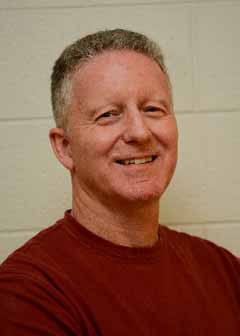 Steve Loeb, University of Windsor, Canada
Steve Loeb, University of Windsor, Canada
Steve Loeb is the Canada Research Chair in Supramolecular Chemistry and Functional Materials and a University Professor in the Department of Chemistry and Biochemistry at the University of Windsor. He completed his BSc (1977) and PhD (1982) degrees at the University of Western Ontario under the supervision of Prof. Christopher Willis. He was elected a Fellow of the Chemical Institute of Canada in 1997, a Fellow of the Royal Society for Chemistry in 2007 and was the 2012 recipient of the CSC Rio Tinto Alcan Award for outstanding achievement in Inorganic Chemistry. He has made significant contributions to the design and synthesis of interlocked molecules and recently pioneered their incorporation into highly organized, metal-organic framework materials.
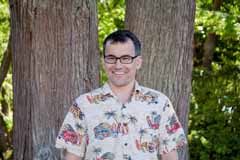 Mark MacLachlan, University of British Columbia, Canada
Mark MacLachlan, University of British Columbia, Canada
Mark MacLachlan obtained his B.Sc. degree from UBC and Ph.D. degree from the University of Toronto in 1999, where he worked with Ian Manners and Geoff Ozin. Following a 2-year NSERC Postdoctoral Fellowship with Tim Swager at M.I.T., Mark returned to UBC to begin as an Assistant Professor in 2001. He was promoted to Associate Professor in 2007 and to Full Professor in 2011. He has received an E. W. R. Steacie Memorial Fellowship (2012-2014), the Rutherford Medal of the Royal Society of Canada (2013), and the Award for Excellence in Materials Chemistry of the Canadian Society of Chemistry (2016). He holds the Canada Research Chair in Supramolecular Materials. Mark’s research interests span supramolecular chemistry, macrocycle chemistry, nanomaterials, mesoporous materials, photonic structures, and biopolymers.
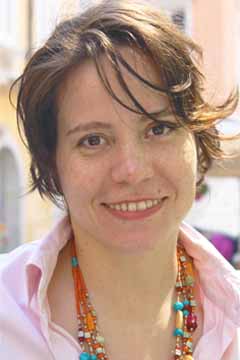 Silvia Marchesan, University of Trieste, Italy
Silvia Marchesan, University of Trieste, Italy
Silvia Marchesan is an Assistant Professor at the University of Trieste, Italy, since 2015. Her research interests lie at the interface between supramolecular chemistry, nanomaterials, and biology. Since her first reports on self-assembling unprotected tripeptides in 2012, she works on chirality effects on peptide self-assembly into superstructures and hydrogels for biological use.
She is also interested in carbon nanostructure derivatisation towards functional hybrids/composites. She completed her M. Sci. in 2004 at the University of Trieste, Italy (supervisor: Prof. M. Prato) and her PhD in 2008 at the University of Edinburgh, UK (supervisor: Dr. D. MacMillan). After a postdoc in Prof. C. Gahmberg’s group (University of Helsinki, Finland) working on integrin-protein modifications related to cell adhesion, she moved in 2010 to Melbourne as a joint research fellow between CSIRO/Monash University to develop nanostructured biomaterials, before returning to Italy in 2013.
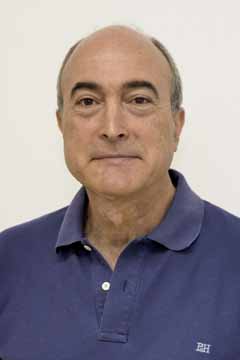 Nazario Martín, University Complutense of Madrid, Spain
Nazario Martín, University Complutense of Madrid, Spain
Nazario Martín, FRSC, is full professor at University Complutense of Madrid and vice-director of IMDEA-Nanoscience Institute. Dr. h.c. by La Havana University, his research interests are focused on molecular and supramolecular chemistry of carbon nanostructures in the context of chirality, electron transfer, photovoltaic applications and nanoscience. He has published over 500 papers and supervised 34 theses (Ih = 62). He is Editor-in-Chief of The Journal of Materials Chemistry (A, B and C) and he has been invited as guest editor for nine special issues in well-known international journals.. He is currently the President of the Confederation of Scientific Societies of Spain (COSCE). He has the “Advanced Grant” of the European Research Council (ERC) entitled “Chriallcarbon”
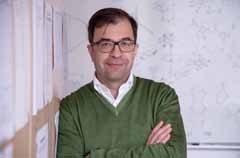 Michael Mastalerz, Universität Heidelberg, Germany
Michael Mastalerz, Universität Heidelberg, Germany
Michael Mastalerz studied Chemistry at the Gerhard-Mercator-Universität in Duisburg, Germany where he got his diploma in 2002. He then moved to the Ruhr-Universität Bochum for his PhD studies, which he finished in 2005. After a short stay in industry, he carried out postdoctoral research in the group of Gregory C. Fu at MIT in Cambridge/USA from 2006 to 2007. He returned to Germany for a second postdoctoral position at Ulm University (Germany) to work in the group of Peter Bäuerle on dendritic oligothiophenes for organic electronic applications. At Ulm University he also started his independent carrier, working towards his habilitation which was successfully achieved in February 2013. Since April 2013 he is professor for Organic Chemistry at the Ruprecht-Karls-Universität Heidelberg. His main research interests focus on the synthesis of large shape-persistent organic cage compounds as soluble porous molecules, hydrogen-bonding based chiral capsules and large fused contorted aromatic compounds.
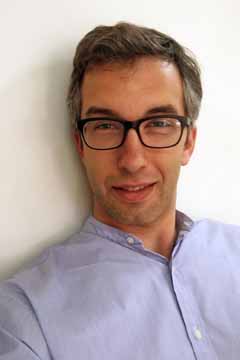 Ognjen Miljanic, University of Houston, United States
Ognjen Miljanic, University of Houston, United States
Оgnjen Miljanić was born in Belgrade, then Yugoslavia, in 1978. He obtained a Diploma from the University of Belgrade (2000) and a PhD from the University of California at Berkeley (2005), where he worked with Prof. K. Peter C. Vollhardt. Between 2005 and 2008, he was a postdoctoral fellow in the laboratory of J. Fraser Stoddart at UCLA. In 2008, he begun his independent research career at the University of Houston, where he is currently an Associate Professor of Chemistry. His research interests include self-organizing behaviors in complex mixtures, information storage in molecules, porous materials, and chemistry of macrocycles. His work was recognized by the 2013 Cottrell Scholar award, 2012 NSF CAREER award, and University of Houston awards for both teaching and research. Ognjen has authored more than 60 papers in the areas of organic and supramolecular chemistry, and presented more than 70 invited lectures at universities and conferences worldwide.
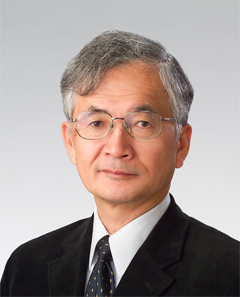 Atsuhiro Osuka, Kyoto University, Japan
Atsuhiro Osuka, Kyoto University, Japan
Atsuhiro Osuka started an academic career at the Department of Chemistry of Ehime University as an assistant professor. In 1984, he moved to the Department of Chemistry of Kyoto University, where he became a professor of chemistry in 1996. His research interests cover development of porphyrin-related compounds with novel structures, electronic systems, and functions.
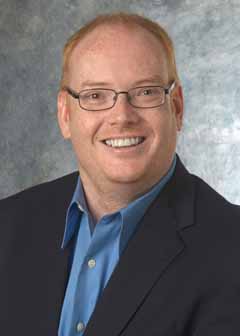 Stuart Rowan, University of Chicago, United States
Stuart Rowan, University of Chicago, United States
Stuart Rowan is currently a Professor of Molecular Engineering and Chemistry at the University of Chicago, where he moved July 1st 2016. He also has a staff appointment at Argonne National Labs. Prior to this he was the Kent H. Smith Professor of Engineering in the Department of Macromolecular Science and Engineering at Case Western Reserve University. Stuart was born in Edinburgh, Scotland and grew up in Troon, Aryshire on the west coast of Scotland. He received his B.Sc. (Hons.) in Chemistry in 1991 from the University of Glasgow and stayed there for graduate school in the laboratory of Dr David D. MacNicol, receiving his Ph.D. in 1995. In 1994 he moved to the Chemistry Department at the University of Cambridge to work with Prof. Jeremy K. M. Sanders FRS. He moved across the Atlantic (and the continental U.S.) to continue his postdoctoral studies with Prof. Sir J. Fraser Stoddart FRS at the University of California, Los Angeles in 1998. In 1999 he was appointed as an Assistant Professor to the Department of Macromolecular Science and Engineering at Case Western Reserve University in Cleveland, Ohio, was promoted to Associate Professor with tenure in 2005 and became a Full Professor in 2008. He is a NSF CAREER awardee, received the Morley Medal (ACS) in 2013, the CWRU Distinguished University Award in 2015, and the Herman Mark Scholar Award (ACS) in 2015. He became an ACS POLY Fellow in 2016 and is a Fellow of the Royal Society of Chemistry. He is the Deputy Editor of the ACS Macro Letters, and on the editorial advisory board for the Journal of Polymer Science Part A: Polymer Chemistry, Chemical Science, and J. Macromolecular Sci, Pure & Applied Chem. His research interests focus on the potential of dynamic chemistry (covalent and non-covalent) in the construction and properties of structurally dynamic polymeric materials. His group works on supramolecular polymers, self-healing materials, stimuli-responsive material and nanocomposites, metal-containing polymers, gels, biomaterials, and developing new synthetic methods for the construction of complex polymeric architectures.
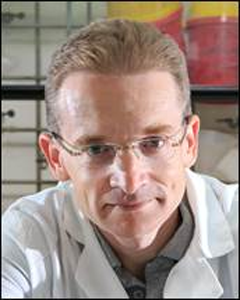 Boris Rybtchinski, Weizmann Institute of Science, Israel
Boris Rybtchinski, Weizmann Institute of Science, Israel
Prof. Boris Rybtchinski received his BSc from Kiev State University, Ukraine. He then moved to Israel where he earned his PhD at the Weizmann Institute of Science (with Prof. D. Milstein). He conducted postdoctoral research at the Northwestern University (with Prof. M. Wasielewski), and joined the Weizmann Institute in 2005. Currently he is an Associate Professor at the Department of Organic Chemistry. Prof. Rybtchinski has received a number of awards, including a Kennedy Prize, Rothschild Postdoctoral Fellowship, an Israel Parliament (Knesset) Prize of Excellence, Sir Charles Clore Prize, and delivered a 2013 Werdelmann Lecture. His research interests include fundamental and applied aspects of water-based noncovalent nanomaterials
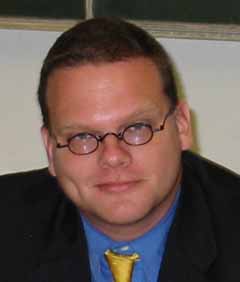 Christoph Schalley, Freie Universität Berlin, Germany
Christoph Schalley, Freie Universität Berlin, Germany
Christoph A. Schalley is professor for organic chemistry and modular synthesis at the Free University of Berlin since October 2005. He received his PhD under the supervision of Helmut Schwarz at the Technical University of Berlin, where he worked on the gas-phase chemistry of peroxides and the neutralization-reionization mass spectrometry of elusive intermediates of organic reactions. The Ph.D. was followed by a postdoctorate with Julius Rebek, Jr. at The Scripps Research Institute in California. At Scripps, he studied non-covalent capsules in the gas phase. In 1999 he joined the University of Bonn as a Liebig-Fellow of the Fonds der Chemischen Industrie to start his own independent research group. In his habilitation, he combined both, gas-phase chemistry and supramolecular chemistry and started work on interlocked molecules and metallo-supramolecular self-assembly. Professor Schalley has authored more than 200 publications and (co-)edited several books on mass spectrometry, dendrimers and template synthesis. He is recipient of the prestigious Dozentenstipendium of the Fonds der Chemischen Industrie (2004) and the Mattauch-Herzog award of the German Society for Mass Spectrometry (2006). The students at Free University Berlin awarded him twice with the prize for excellence in teaching (2008, 2014). Currently, his research group works on surface chemistry, stimuli-responsive low molecular weight gelators and systems chemistry
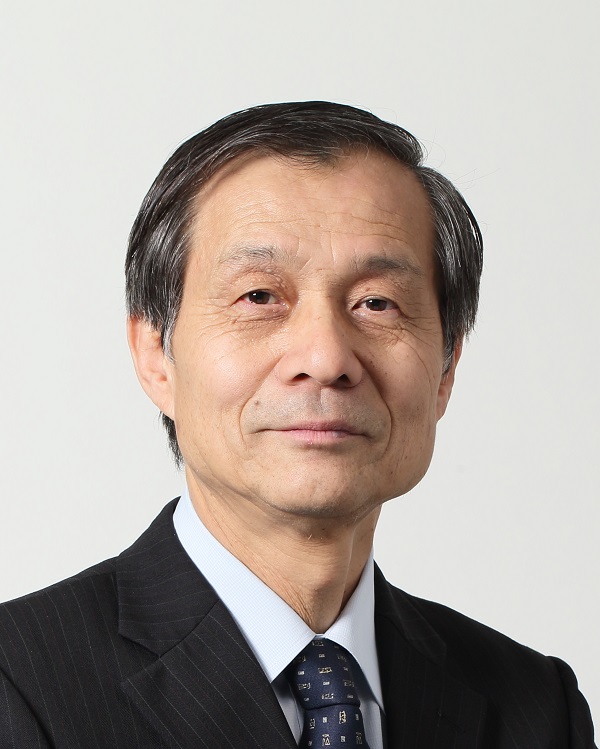 Kenso Soai, Tokyo University of Science, Japan
Kenso Soai, Tokyo University of Science, Japan
Professor Kenso Soai obtained his Ph.D. degree from University of Tokyo with Prof. Teruaki Mukaiyama. After postdoctoral Research Associate with Prof. Ernest L. Eliel at the University of North Carolina at Chapel Hill, he joined the faculty member at Tokyo University of Science. He has been full Professor of Applied Chemistry since 1991. He was the Director of Chiral Materials Research Center, Research Institute of Science and Technology, Tokyo University of Science, 2007-2012. He was visiting Professors at Ecole Supérieure de Physique et Chimie Industrielles de la Ville de Paris (ESPCI), 2001, Kyushu University, 2005, Université Louis Pasteur, 2008, Waseda University, 2007-2010, Jilin University, 2011-2015. His main research interest is asymmetric autocatalysis and the origin of homochirality. Among his awards, include The Chemical Society of Japan Award for Creative Work for 1999, Molecular Chirality Award, 2002, Merit of Science and Technology, Tokyo, 2002, Synthetic Organic Chemistry Award, 2003, Medal of National Academy of Sciences, Literatures and Arts, Modena, 2003, Chirality Medal 2005, Science and Technology Prize by the Minister of Education, Culture, Sports, Science and Technology, 2007, The Chemical Society of Japan Award for 2010, Medal with Purple Ribbon from Japan, 2012, Doctor Honoris Causa from University of Pannonia, 2015, Toray Science and Technology Award, 2017. His Nature paper (1995, 378, 767) on Asymmetric Autocatalysis has been selected by the Editor of Nature as one of the 35 most excited chemistry papers published in Nature in the last 50 years from 1950 to 2000.
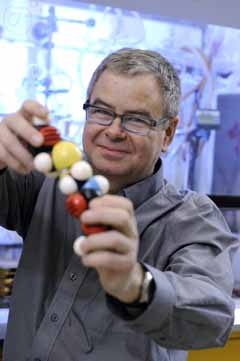 Normand Voyer, Université Laval, Canada
Normand Voyer, Université Laval, Canada
Normand Voyer was born in St-Eustache, Quebec. He graduated from Université Laval with a B. Sc. in Chemistry in 1981. He did his graduate studies at Laval under the direction of Professor Robert Chênevert. He obtained his Ph. D. in 1985. He then joined Donald J. Cram (1987 Nobel Laureate) group at UCLA, where he worked as Postdoctoral Scholar. He moved to the Central Research Department of E. I. DuPont De Nemours & Co (Wilmington, DE, USA) in January 1987 where he was a Visiting Scientist in Dr. William F. DeGrado Laboratory. In August 1988, he accepted an Assistant Professor appointment at the Université de Sherbrooke and got promoted there Associate Professor in 1993, before moving back to Laval University in 1996 where he got promoted to the rank of Full Professor in 1999. He has been the founder and Scientific Director of PROTEO, the Quebec Research Network on the Function, the Structure, and the Engineering of Proteins, a multidisciplinary research centre, since 1999. He also served as Chairman of the Department of Chemistry for 9 years until June 2013. Professor Voyer's efforts are focussed in bioorganic and supramolecular chemistry.
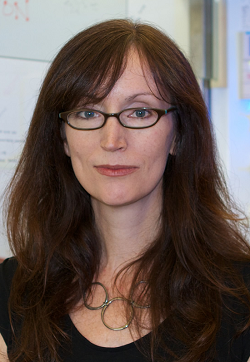 Marcey Waters, University of North Carolina, United States
Marcey Waters, University of North Carolina, United States
Marcey Waters received a BA from UCSD, where she performed undergraduate research with Professor Charles Perrin. She earned her PhD in 1997 from the University of Chicago with Professor William Wulff studying organometallic reaction mechanisms. Subsequently she did an NIH postdoctoral fellowship in Ronald Breslow’s group at Columbia University doing research in bio-organic chemistry. She joined UNC Chapel HIll in 1999 at UNC Chapel Hill, where she is currently the Bowman and Gordon Gray Distinguished Professor of Chemistry. Her research applies supramolecular chemistry to sensing of protein modifications involved in gene regulation. She is currently the President-Elect of the American Peptide Society and serves on the Editorial Advisory Board for JACS.
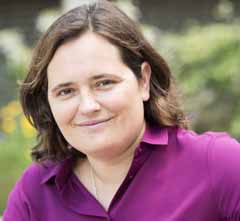 Charlotte Williams, University of Oxford, United Kingdom
Charlotte Williams, University of Oxford, United Kingdom
Charlotte Williams is professor of catalysis and polymer chemistry at Imperial College London. She leads a multi-disciplinary research team investigating catalysts and processes which allow renewable resources to be transformed into polymers and fuels. In particular, her group have developed various new macrocyclic catalysts allowing carbon dioxide copolymerization and switchable catalysts allowing mixtures of carbon dioxide, epoxides, anhydrides and lactones to be selectively enchained. Her work has been recognised by various prizes and awards, including the WISE Tech Start Up Award, Bio-environmental Polymer Society Outstanding Young Researcher Award and the Royal Society of Chemistry Energy Environment and Sustainability Young Researcher Award. Charlotte is the founder and a director of econic technologies, an SME commercializing catalysts for transforming carbon dioxide to polymers (http://www.econic-technologies.com/). Charlotte was appointed at Imperial college London in 2003 and has held an EPSRC Advanced Research Fellowship, prior to beginning her independent academic career she worked as a postdoctoral researcher with Professors Richard Friend FRS and Andrew Holmes FRS (Cambridge University) on light emitting polymers and with Professors Marc Hillmyer and Bill Tolman (University of Minnesota) on catalysts for lactide polymerization. She was awarded both her degree and PhD from Imperial College London, her thesis was supervised by Professors Vernon Gibson FRS and Nick Long.
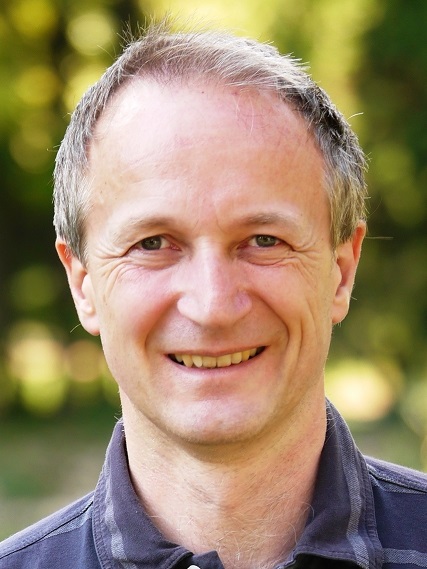 Frank Wuerthner, Universitaet Wuerzburg, Germany
Frank Wuerthner, Universitaet Wuerzburg, Germany
Frank Würthner received his education in Chemistry at the University of Stuttgart (Germany, PhD degree in 1993). He carried out postdoctoral research at MIT in Cambridge/MA, Jr. and spent two years in the BASF central research laboratories, followed by the Habilitation in Organic Chemistry at the University of Ulm. Since 2002, he is professor at the University of Würzburg, where he has served as head of the Institute of Organic Chemistry, dean of the Chemistry Department and founding director of the Center for Nanosystems Chemistry. His main research interests include the synthesis of pi-conjugated molecules and functional dyes, their application in organic electronics, photonics and photovoltaics, the construction of complex supramolecular architectures composed of pi -scaffolds, the mechanistic elucidation of self-assembly processes, and the investigation of light-induced processes in dye-based nanosystems. He has published more than 350 papers and is listed among the highly cited chemists of the last decade








































